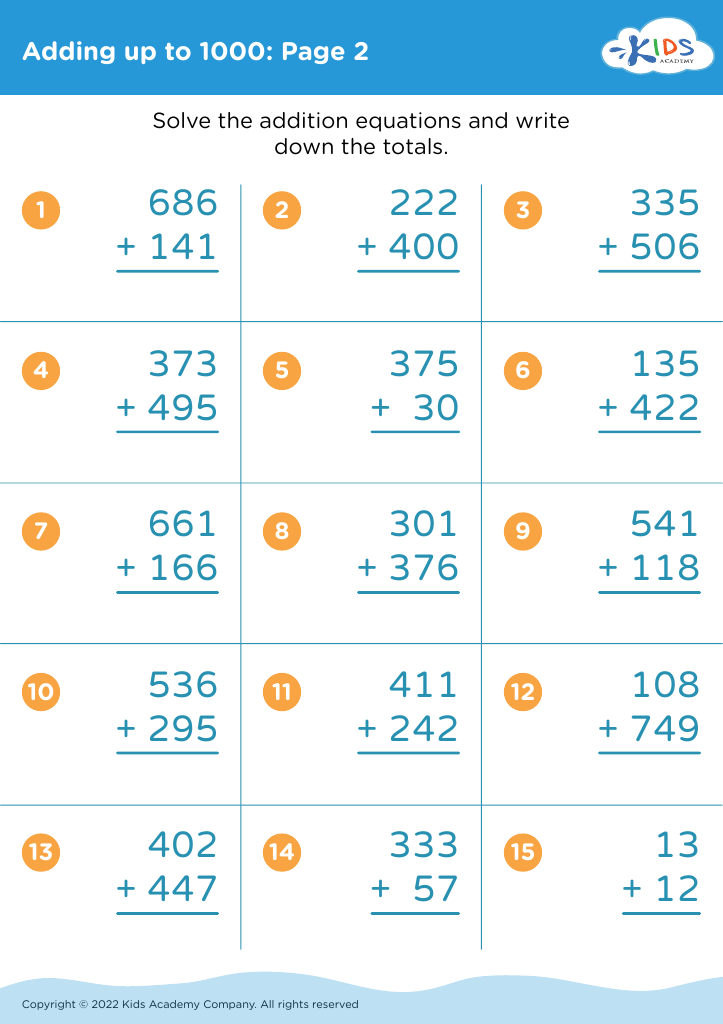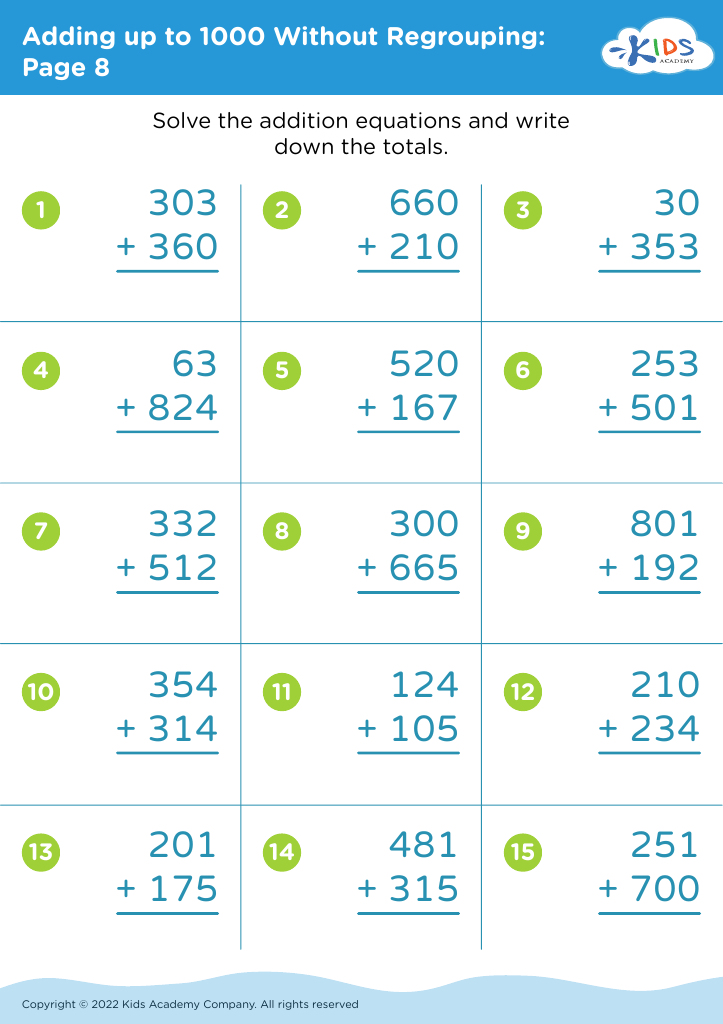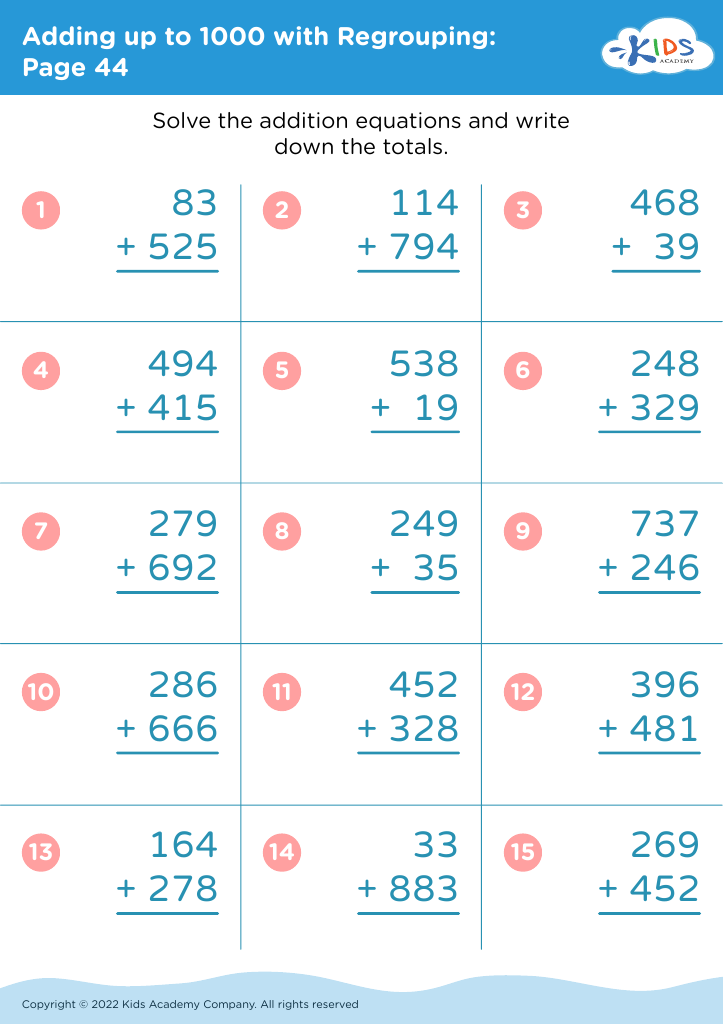Develop critical thinking Adding up to 1000 Worksheets for 8-Year-Olds
3 filtered results
-
From - To
Unlock the power of critical thinking with our comprehensive collection of 1000 worksheets designed for 8-year-olds! Our "Adding Up to 1000" series not only enhances math skills but also fosters analytical reasoning. These printable activities challenge children to solve complex problems, encouraging them to think outside the box while mastering addition. Each worksheet is thoughtfully crafted to engage young learners, helping them connect mathematical concepts with real-life scenarios. By incorporating critical thinking strategies into their studies, children will build confidence and develop essential skills for future academic success. Explore our rich resources today and inspire a lifelong love for learning!
Developing critical thinking skills in 8-year-olds is crucial for their overall growth and success. At this age, children are beginning to form their own opinions, ask deeper questions, and understand the world around them. By focusing on critical thinking, parents and teachers equip kids with the ability to analyze information, evaluate different viewpoints, and solve problems creatively.
Critical thinking encourages children to think independently rather than passively accepting what's been told to them. This skill fosters a sense of curiosity, prompting students to explore new ideas and challenge assumptions. Additionally, it builds confidence in their decision-making abilities, allowing them to navigate challenges effectively.
Furthermore, critical thinking can significantly enhance academic performance. It promotes better comprehension in subjects like reading and math, as children learn to apply logic and reasoning to their work. In an increasingly complex world, these skills are vital for preparing them for future challenges in school, relationships, and careers.
Ultimately, nurturing critical thinking in young learners cultivates lifelong learners who can adapt, innovate, and contribute meaningfully to society. Parents and teachers have the important role of guiding this development, ensuring children are empowered to think for themselves confidently.















